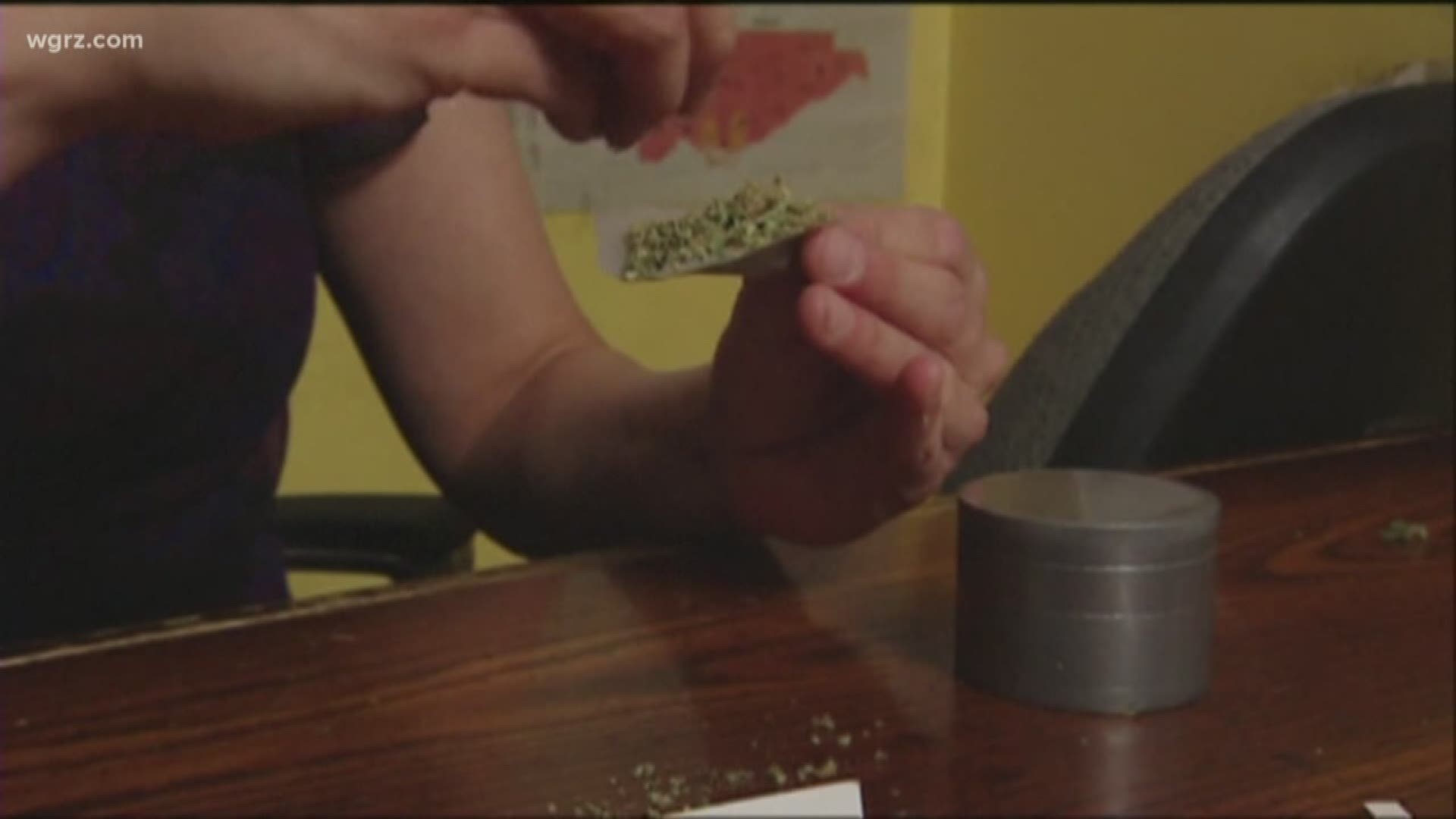ALBANY, N.Y. — In New York state government news, lawmakers ended their 2019 session on Friday with a long list of progressive accomplishments but several high-profile bills didn't get a vote.
The list includes proposals to legalize and regulate recreational marijuana sales, permit paid surrogacy, eliminate criminal penalties for sex work and allow the terminally ill to request life-ending drugs from a physician.
Here's a look at some of the bills that didn't pass, and why:
MARIJUANA LEGALIZATION: Many lawmakers began the session in January with the hope of adding New York to the growing list of states that have legalized the drug for recreational purposes. But consensus on the details proved elusive.
Instead, lawmakers turned to a "Plan B" bill which eliminated the remaining criminal penalties for possessing up to two ounces of pot. Instead, people now caught with marijuana in public will face fines.
The bill also allows for the expungement of past pot convictions, a change which will affect the records of an estimated 600,000 New Yorkers.
"This is not the final step, but it will lay the groundwork for full decriminalization and legalization in the future," said Speaker Carl Heastie, D-the Bronx.
Advocates for full legalization say they'll begin mobilizing for another push in the 2020 session — though lawmakers may be more wary of the issue during a year in which every member of the Legislature stands for election.
PAID SURROGACY: New York and Michigan are now the only two states with laws expressly forbidding surrogacy contracts, in which a woman is compensated for carrying the child of another couple or individual.
Replacing that law with one permitting and regulating paid surrogacy was a top priority for LGBTQ advocates, who say the state's ban forces many same-sex couples to go to other states to find surrogates.
But while the Senate voted to repeal the current ban, the Assembly balked after members in that chamber expressed concerns about that allowing paid surrogacy would exploit surrogates and commercialize their reproductive systems.
Top lawmakers, however, said the Assembly would study the issue and look to make changes to the bill in the hopes of finding a compromise.
"We are deeply disappointed," said Stan Sloan, CEO of the Family Equality Council, an organization that had pushed for the repeal. "But we look forward to soon finishing the effort."
AID-IN-DYING: Legislation that would allow people diagnosed with a terminal illness to request life-ending drugs from a doctor has been around for years but has still yet to get a vote in either the Senate or the Assembly.
This year, however, the issue got a new champion in Gov. Andrew Cuomo, who said he supported the measure. The Democrat acknowledged late in the session that he didn't expect the measure to pass because it remained too contentious in the Legislature.
The bill before lawmakers would require two doctors to sign off on the use of life-ending medication.
Advocates say they'll continue to reach out to lawmakers and note that the bill has gained new supporters in the Legislature each session.
"People who are dying don't have the luxury of endless deliberations," said Kim Callinan, chief executive of the organization Compassion & Choices, which has led the push for the law in New York.
Nine states and Washington, D.C., already allow people to seek a doctor's help in ending their lives.
SOLITARY CONFINEMENT: Critics of the state's correctional system were hoping lawmakers would pass legislation to restrict the use of solitary confinement in prisons and jails to 15 days and were disappointed when lawmakers adjourned without voting on the proposal.
Instead, top lawmakers and Cuomo struck a deal for the state corrections agency to revamp its use of isolation, with the goal of limiting it to 30 days.
ROBOCALLS: The state Senate voted to place new restrictions on robocalls, but the measure never got a vote in the Assembly.
Under the proposal, telephone companies would have to offer free services to customers allowing them to block robocalls. It would also prohibit robocallers from placing calls from fake numbers and give prosecutors new powers to go after phone scammers. The measure won the backing of AARP and Consumer Reports.
Supporters say they'll try again next year.
AUTOMATIC VOTER REGISTRATION: An error in the wording forced lawmakers to scrap a bill that would have created an automatic voter registration system, in which any citizen that fills out a state form is added to the voting rolls.
Lawmakers this year voted to authorize driver's licenses for immigrants in the country illegally. The mistake in the automatic voter registration legislation would have inadvertently added them to the voting rolls, even though they are prohibited from casting a ballot.
Lawmakers caught the mistake in the session's final days and said they'll try to pass the corrected bill again in the next session.
MORE ON WGRZ.COM

